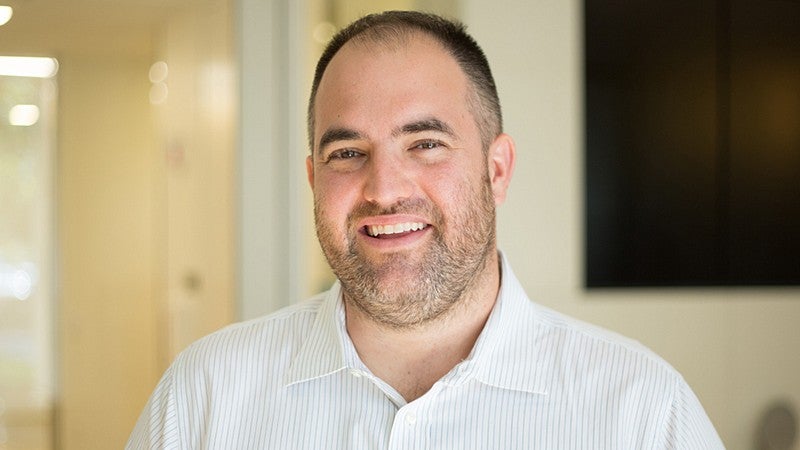
Google's Stephen Gillett is Gamer, On and Off the Field
By Matt Cooper • Photo courtesy of Scribe Media • January 21, 2020
3 min read
Stephen Gillett, BS ’98 (political science), is the cofounder and former CEO of Chronicle, a cybersecurity company of Google. An avid gamer whose skills translated to the business world, Gillett—now executive advisor to the CEO of Google—led the technological transformation of Starbucks under Howard Schultz and worked with Bill Gates at Corbis, a digital content and licensing company. In From Simi Valley to Silicon Valley: A Story of Hard Work, Serendipity, and Questing, the former Ducks offensive guard imparts lessons learned, including these excerpts:
On Bill Gates and purpose:
Gillett’s work with the Bill and Melinda Gates Foundation was peripheral but he was inspired by its purpose—working for the greater good of humanity: When I make an employment decision for myself or recruit others, I lead with purpose. More important than how much money the company can make or what its stock price is, I am concerned with answering questions like why we are here, why we have this opportunity, and what problem we are solving for people and organizations.
On Starbucks' Howard Schultz and people power:
Gillett wasn’t initially sold on leaving tech for the coffee-making giant, especially given that in 2008, the company was struggling and in decline. But he was impressed by Schultz, who had returned as CEO and brought with him a crystal-clear understanding of the company’s stakeholders—customers and employees: In Howard’s office, he had an org chart about the size of a big white board. There were two boxes on it. The top box said “customers” and the bottom one said, “all of us.” That white board always acted as a reminder of who we were all there to serve every time we made a decision for the company: our customers and our people . . . Howard told me, “We can never expect our people to exceed the expectations of our customers if leadership doesn’t exceed the expectations of our people.” . . . The notion that, as a leader, I had to always work to exceed the expectations of our people really stuck with me . . . We weren’t just making our customers’ lives better; we were also making our people’s lives better in very real and measurable ways.
On serendipity:
Gillett’s rise is due in part to being in the right place at the right time and always doing his best work—even when no one is watching: [At Office Depot] one of our regular customers was a guy who looked pretty scraggly. “Might as well help anyone who walks through the door.” That was my philosophy. One day, this [same] guy came in with his wife, wearing a suit and looking very clean-shaven. He was the chief administrative officer of the regional hospital that was on track to become part of a huge Northwest healthcare community called PeaceHealth Medical Group. He told me, “We’re going to invest heavily in information systems for the hospital and clinics just south of Eugene. I’d like you to come be the IT coordinator.”
On the value of the quest:
Gillett is known as an innovative leader in the multiplayer video game, World of Warcraft, which includes more than 15,000 quests to be completed—killing creatures or locating a hidden object, for example. Typically, the quests enable characters to gain new skills and explore new areas—all of which, for Gillett, translated readily to the tech world: Gaming ended up being a great training ground for participating in the emerging digital economy. It’s about how you engage and solve real-world tasks, whether they are business, market, talent, or culture related, or just general leadership. The questing disposition is about mindset and overcoming challenges in these areas.
Matt Cooper is managing editor of Oregon Quarterly.

